Search
Search Results

Video
Prize amphora showing a chariot race
Chariot-racing was the only Olympic sport in which women could take part, as owners of teams of horses. Kyniska, a princess of Sparta, was the first woman to win the Olympic crown in this sport. British Museum curator Judith Swaddling describes...

Image
Raising the Flag on Iwo Jima
One of the most famous images of the Second World War, Raising the Flag on Iwo Jima, by Joe Rosenthal of the Associated Press, was taken 23 February 1945 on the Japanese Island of Iwo Jima in the late stages of the Pacific War. The image...
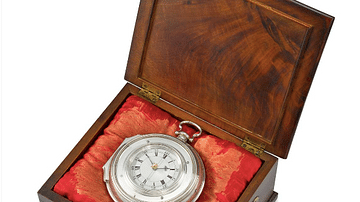
Article
Harrison's Marine Chronometer
John Harrison (1693-1776) invented an accurate marine chronometer after several decades of research and development. While the pendulum clock had already been invented in the 17th century, a clock that could withstand the vagaries of the...

Video
Islamic Art Spots - Geometry
Written and presented by D. Fairchild Ruggles A production of Twin Cities Public Television A presentation of the National Endowment for the Humanities in cooperation with the American Library Association Producer: Jeffrey Weihe Music...
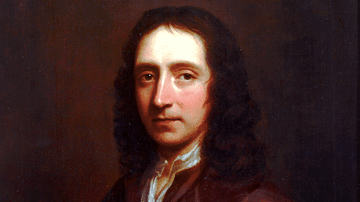
Definition
Edmond Halley
Edmond Halley (1656-1742) was an English astronomer, mathematician, and cartographer. Halley's Comet is named after him since he accurately predicted its return in 1758. One of the early globetrotting scientists, Halley led several maritime...

Definition
Christiaan Huygens
Christiaan Huygens (1629-1695) was a Dutch mathematician, physicist, and astronomer. A leading figure of the Scientific Revolution, Huygens combined research into mathematical-based theories, such as the movement of light waves, with practical...
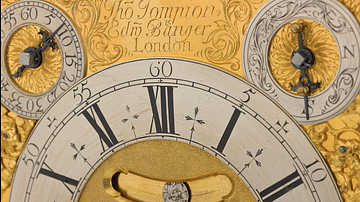
Article
Clocks in the Scientific Revolution
Keeping good time proved an elusive objective for centuries, and it was only in the second half of the 17th century, during the Scientific Revolution (1500-1700), that clocks were made which lost seconds rather than minutes each day. The...
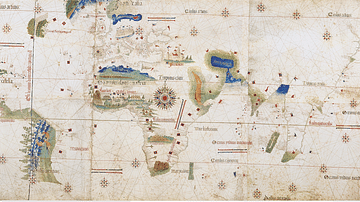
Definition
Treaty of Tordesillas
The 1494 Treaty of Tordesillas (Tordesilhas) was an agreement between the monarchs of Spain and Portugal to divide the world between them into two spheres of influence. The imaginary dividing line ran down the centre of the Atlantic Ocean...
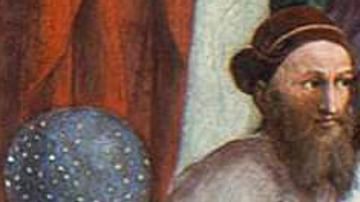
Definition
Hipparchus of Nicea
Hipparchus of Nicea (l. c. 190 - c. 120 BCE) was a Greek astronomer, geographer, and mathematician regarded as the greatest astronomer of antiquity and one of the greatest of all time. He is best known for his discovery of the precession...
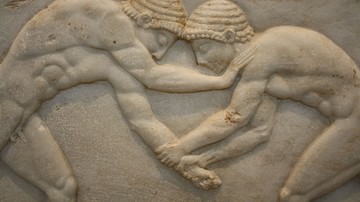
Definition
Ancient Olympic Games
The ancient Olympic Games were a sporting event held every four years at the sacred site of Olympia, in the western Peloponnese, in honour of Zeus, the supreme god of the Greek religion. The games, held from 776 BCE to 393 CE, involved participants...